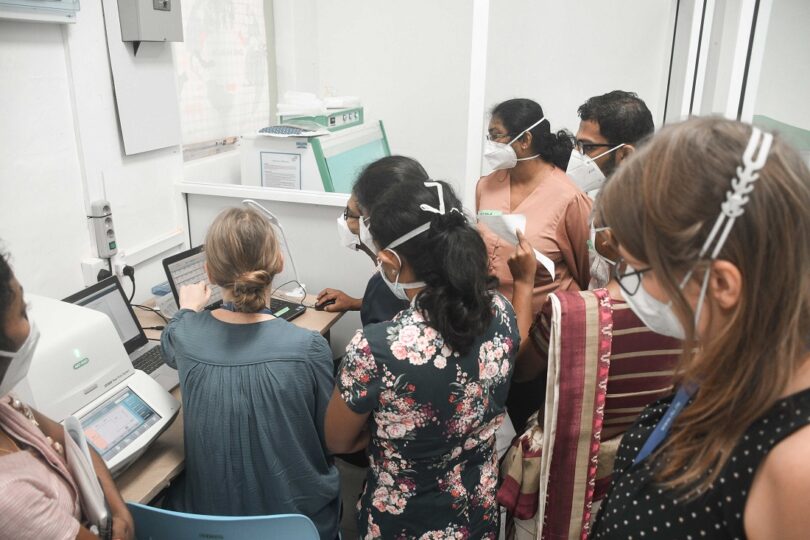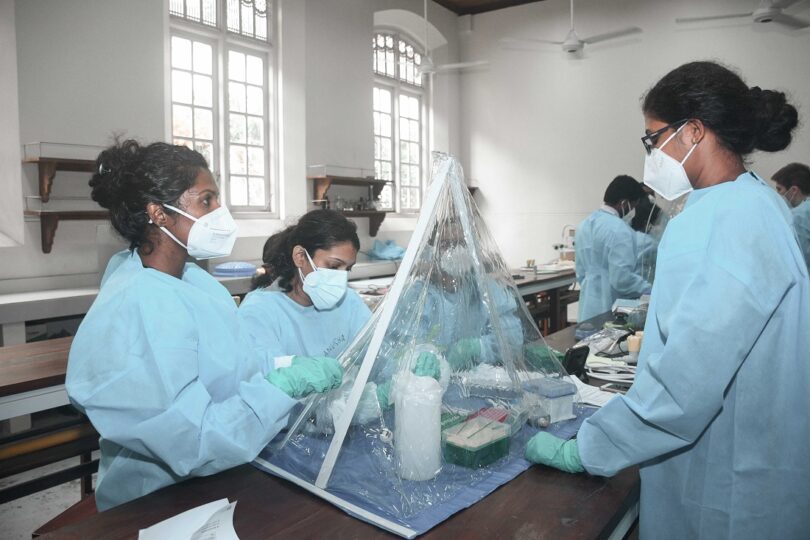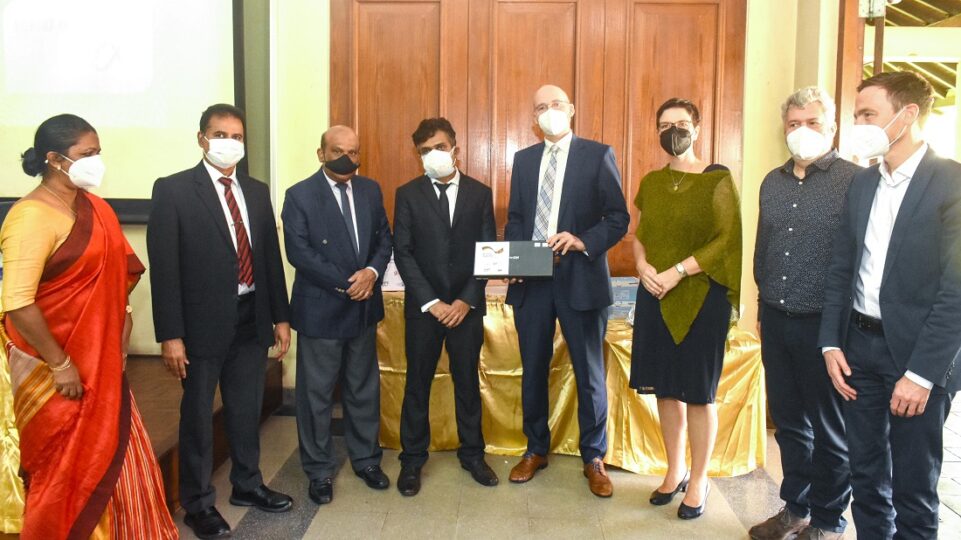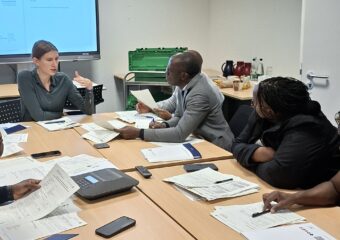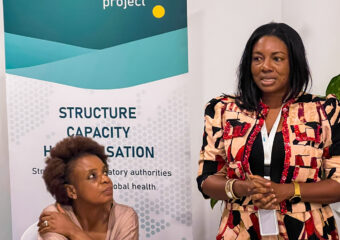Training for SARS-CoV-2 Diagnostics in Sri Lanka
Since the beginning of the COVID-19 pandemic the IDEA project has been supporting the partner country Sri Lanka with technical consultation and by providing reagents and equipment for the laboratory diagnostics. In November 2021 the IDEA project organized trainings for the PCR diagnostics, subtyping and MinION-based sequencing of SARS-CoV-2 at the University of Colombo (UoC), Sri Lanka.
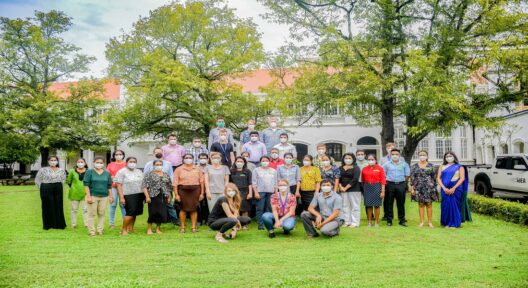
Within the framework of the Global Health Protection Programme (GHPP), the IDEA project focuses on the molecular diagnostics of highly pathogenic viruses in Sri Lanka. In the course of the past years, PCR laboratories were set up in the partner institutions Colombo North Teaching Hospital (CNTH) and University of Colombo (UoC) and technical staff was trained in PCR diagnostics and MinION sequencing. With the beginning of the COVID-19 pandemic, these laboratories were rapidly adapted for the molecular diagnostics of SARS-CoV-2. The IDEA project provided technical support, reagents and laboratory equipment and has been supporting the partner institutions continuously throughout the pandemic.
In November 2021 a training for PCR-based diagnostics and typing and MinION sequencing of SARS-CoV-2 was realized. In accordance with the pandemic situation strict precautions were set for participation: All attendees had to be fully vaccinated and antigen rapid tests were carried out prior to every training session; FFP2 masks were mandatory during the workshop.
16 participants were trained for the PCR-based detection and typing of SARS-CoV-2. During this workshop an in-house 4-plex assay (adapted from Michel et al. 2021) was used, followed by various assays for PCR typing of SARS-CoV-2 variants. In-house assays and commercially available kits were used, and on the basis of result interpretation, contamination risks and troubleshooting the participants learned about and discussed advantages, disadvantages, applications and limitations of the different assays.
A second workshop was carried out with 8 participants from different laboratories from all over Sri Lanka and focused on the sequencing SARS-CoV-2 by using MinION technology (Oxford Nanopore Technologies, ONT). Colleagues from the UoC prepared and conducted the workshop mainly independently following the train-the-trainer principle. The training included the sample preparation of an in-house AmpliCoV protocol (Brinkmann et al. 2021) and software-based data analysis of the commercially available Midnight protocol (ONT). After trouble shooting, both methods were compared and advantages and disadvantages were discussed for future applications.
In order to extend the sequencing capacities in Sri Lanka, a new sequencing laboratory was established at the Medical Research Institute (MRI), and laboratory equipment and reagents for the MinION sequencing were provided jointly by the IDEA project and the German Epidemic Preparedness Team (SEEG).
The dedicated material was handed over in an official ceremony with representatives of the Ministry of Health in Sri Lanka, WHO and GIZ which attended by the German ambassador in Sri Lanka, Holger Seubert, and his deputy Olaf Malchow.
Besides the workshops a number of meetings with project and cooperation partners were realized during this stay. In a meeting with the Vice Chancellor of UoC, Prof. Maithripala Sirisena, the developments within the IDEA project were presented and follow-up projects were discussed. Further discussions about the project were held in the German embassy in Colombo, the GIZ country headquarter and the WHO.
We are very grateful to the people who contributed to the successful trainings with much commitment and enthusiasm: Rochelle Anthonies (UoC), Claudia Banse (RKI), Juliane Fraissinet (RKI), Lennart Heere (RKI), Janine Michel (RKI), Therese Muzeniek (RKI), Andreas Nitsche (RKI), Thejanee Perera (UoC), Andreas Puyskens (RKI), Franziska Schwarz (RKI), Sahan Siriwardana (UoC). Thanks to Andreas Gilsdorf (GIZ) and Inoka Perera (UoC) for supporting the project meetings.
Date: March 2022

